Having a hard time fueling your little one, well thats the case with most parents. Almost every child dislikes eating food. Being fussy eater or a picky eater is not a health issue, its more for behavioral reasons. Let us find some tips on how to handle a fussy eater. There may be times when the feeding challenges are so complex that you may have to adopt methods to get the feeding fix right in place. Specially as toddlers, the terrible twos stage when children throw out everything despite liking the taste. Its more of fun activity for them than a nutrition and health regime.
[Read: Essential survival skills for kids]
Its just more complicated for some and for others it comes little easy with a few days of exception. The most important reason for their rejection of food and acting up every time being served a meal, is, their need to take charge. They were, until now, taken care of by the parents. From starting with what to wear, how to dress, what to play and what to eat. Almost everything was under parental control and supervision. Now they are becoming more and more independent and they want to take charge of it all. In between this they start understanding how food is critical for a parent. And probably thats the most important thing they can take charge of. So begins the fussy eater to picky eater to almost a starver. They can spit out anything and refuse food further and theres nothing much we can do in the moment.
Check campnavigator for exclusive and wonderful summer camp listings in your area.
10 Tips on How to Handle a Fussy eater:
1- Introduce vegetables first:
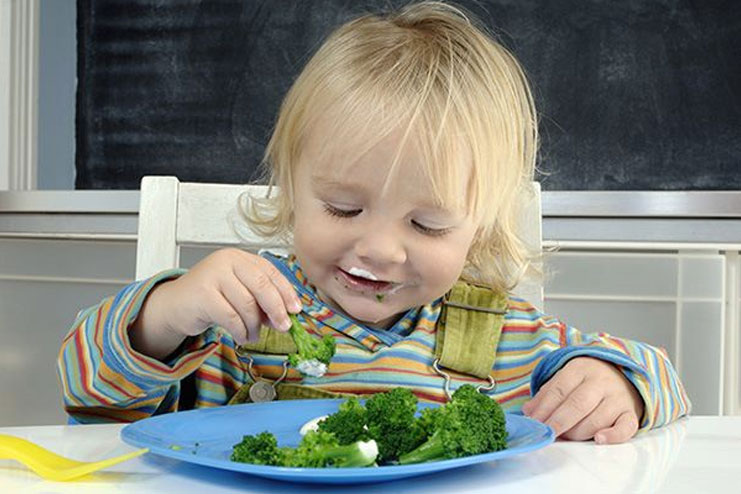 The main reason why i write this is my personal experience. I started with apple sauce as her first food at age 5 months, and when i gave sweet potato and peas there was a sure rejection. This came out as a surprise as age 6 months is too early to star being fussy. But its not, if children get fruits or sweet taste given first they start sticking with that and avoid vegetables of bland tastes. Thus if you give them vegetables first they will have a liking for it. Thus lesser chances of being fussy with vegetables as they grow
The main reason why i write this is my personal experience. I started with apple sauce as her first food at age 5 months, and when i gave sweet potato and peas there was a sure rejection. This came out as a surprise as age 6 months is too early to star being fussy. But its not, if children get fruits or sweet taste given first they start sticking with that and avoid vegetables of bland tastes. Thus if you give them vegetables first they will have a liking for it. Thus lesser chances of being fussy with vegetables as they grow
[Read: Ways on spending quality time with kids]
2- Fix up a place to eat:
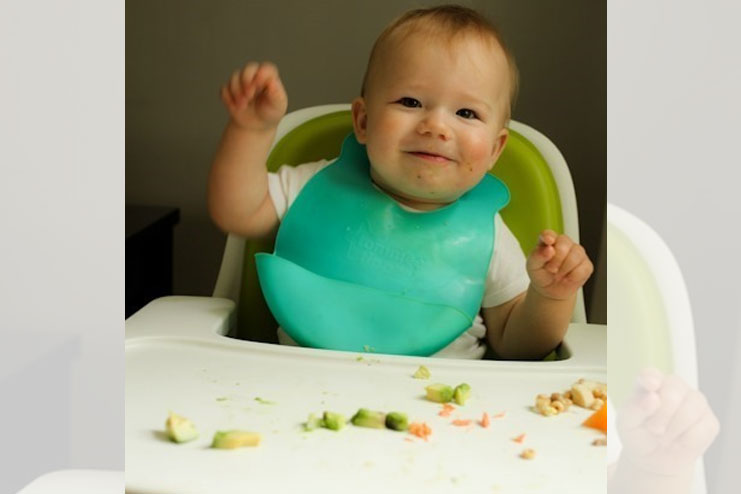 Do no indulge in old school theory of feeding in the park, in backyard among huge gatherings. This may work for a few days but at the end a child has to learn, there is a place where meals must be taken. Install a high chair as early as they start sitting upright and taking mashed fruits. Do not change the place and stick with the time for every meal.
Do no indulge in old school theory of feeding in the park, in backyard among huge gatherings. This may work for a few days but at the end a child has to learn, there is a place where meals must be taken. Install a high chair as early as they start sitting upright and taking mashed fruits. Do not change the place and stick with the time for every meal.
3- Avoid distractions:
 Do not begin feeding by showing tablet or mobile every time. A TV might solve problem in few days initially but it will not be a long term solution. Children have to learn how meal times are and why we eat. Not to entertain and sneak food in their mouth while they are busy watching their favorite show. This would be a problem when they grow up. So better not indulge in the first place. The easier options in beginning turn our a hara-kiri for us later.
Do not begin feeding by showing tablet or mobile every time. A TV might solve problem in few days initially but it will not be a long term solution. Children have to learn how meal times are and why we eat. Not to entertain and sneak food in their mouth while they are busy watching their favorite show. This would be a problem when they grow up. So better not indulge in the first place. The easier options in beginning turn our a hara-kiri for us later.
4- Teach independence early on:
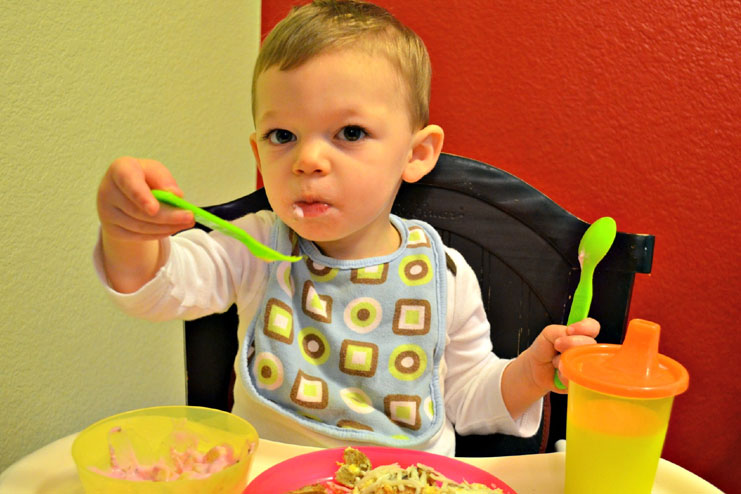 Give your child a spoon as early as they start holding their spoon. Make them sit upright and feed themselves. No matter they spill more than their tongue can even taste. But this is important for them to be independent and feeding themselves. I have seen moms running around kids even at age 4 years, to feed them with their own hands. This not only makes the child enjoy the fun part more than feeding, but the parent is left angry and upset most often. A child should know their hunger pangs and be able to satiate them by age 2. Let them have an access to simple finger foods, where they can find the food when hungry and feed themselves. Being a firm Montessori believer we had this set up at age 2 for our little one. Though it was more fun to begin, but became easy by the time she reached age 3.
Give your child a spoon as early as they start holding their spoon. Make them sit upright and feed themselves. No matter they spill more than their tongue can even taste. But this is important for them to be independent and feeding themselves. I have seen moms running around kids even at age 4 years, to feed them with their own hands. This not only makes the child enjoy the fun part more than feeding, but the parent is left angry and upset most often. A child should know their hunger pangs and be able to satiate them by age 2. Let them have an access to simple finger foods, where they can find the food when hungry and feed themselves. Being a firm Montessori believer we had this set up at age 2 for our little one. Though it was more fun to begin, but became easy by the time she reached age 3.
Check campnavigator for exclusive and wonderful summer camp listings in your area.
5- Rewards and fun:
 Associate rewards like taking to park, going to library and museum or letting them play in muddy puddles, for finishing their plate BY THEMSELVES. These things work wonderfully if you be sure to take them the first time they finish their plate and continue every time they accomplish it.
Associate rewards like taking to park, going to library and museum or letting them play in muddy puddles, for finishing their plate BY THEMSELVES. These things work wonderfully if you be sure to take them the first time they finish their plate and continue every time they accomplish it.
[Read: Dealing with children’s behavior issues]
6- Presentation of food must be great:
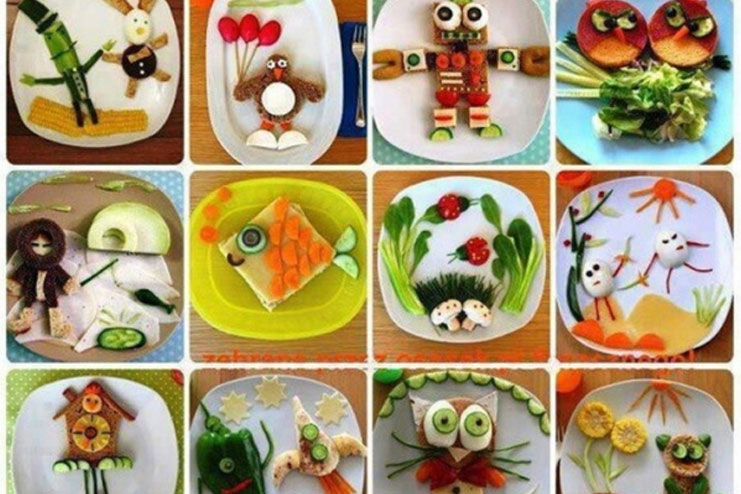 Even if its a spinach or a broccoli, be sure to make it as appealing as possible.Make your child also a part of decorating and arranging their table and their food in their plate. Be sure to pick the plate and spoon they love the most. This will make feeding more of fun for the kids
Even if its a spinach or a broccoli, be sure to make it as appealing as possible.Make your child also a part of decorating and arranging their table and their food in their plate. Be sure to pick the plate and spoon they love the most. This will make feeding more of fun for the kids
7- Family meal times:
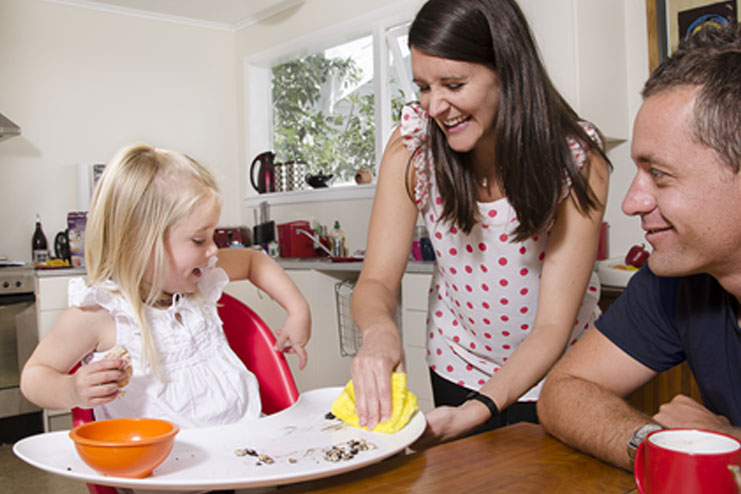 Be sure to have at least one daily meal together as a family. This helps the child to understand the importance of eating right and eating together. No one gets to use their phones or tablets while eating and no one gets up without finishing their plate. Some such rules may be difficult initially but in a few months this becomes organic and child understands the importance of the meal times.
Be sure to have at least one daily meal together as a family. This helps the child to understand the importance of eating right and eating together. No one gets to use their phones or tablets while eating and no one gets up without finishing their plate. Some such rules may be difficult initially but in a few months this becomes organic and child understands the importance of the meal times.
[Read: Developing interpersonal skills in children]
 The above compilation on 7 Tips on How to Handle a Fussy eater is based on my own experiences and learnings overtime. There are tiring times when we enter into power battles with our little ones, but its more about letting them be independent and choosing the right way. Nothing is easy at first, and with little ones 10-15 times of effort is a normal way to introduce any food or any behavior norms. Some kids take months to understand and follow them. Be patient and just stick with your rules, in a few months things will be better and there wont be issues of fussy eaters.
The above compilation on 7 Tips on How to Handle a Fussy eater is based on my own experiences and learnings overtime. There are tiring times when we enter into power battles with our little ones, but its more about letting them be independent and choosing the right way. Nothing is easy at first, and with little ones 10-15 times of effort is a normal way to introduce any food or any behavior norms. Some kids take months to understand and follow them. Be patient and just stick with your rules, in a few months things will be better and there wont be issues of fussy eaters.
Check campnavigator for most exclusive camp listings!
By Minu Manisha









